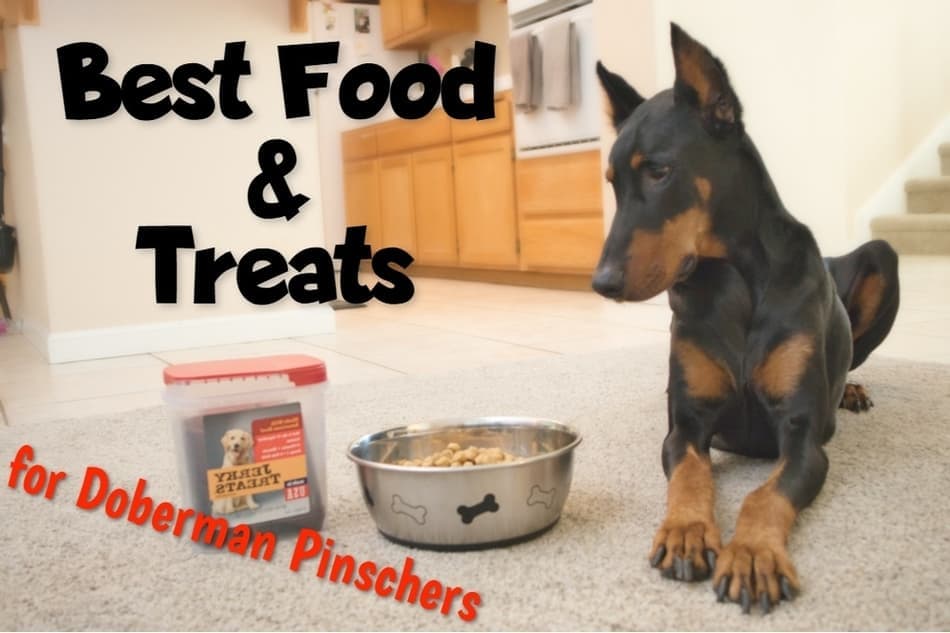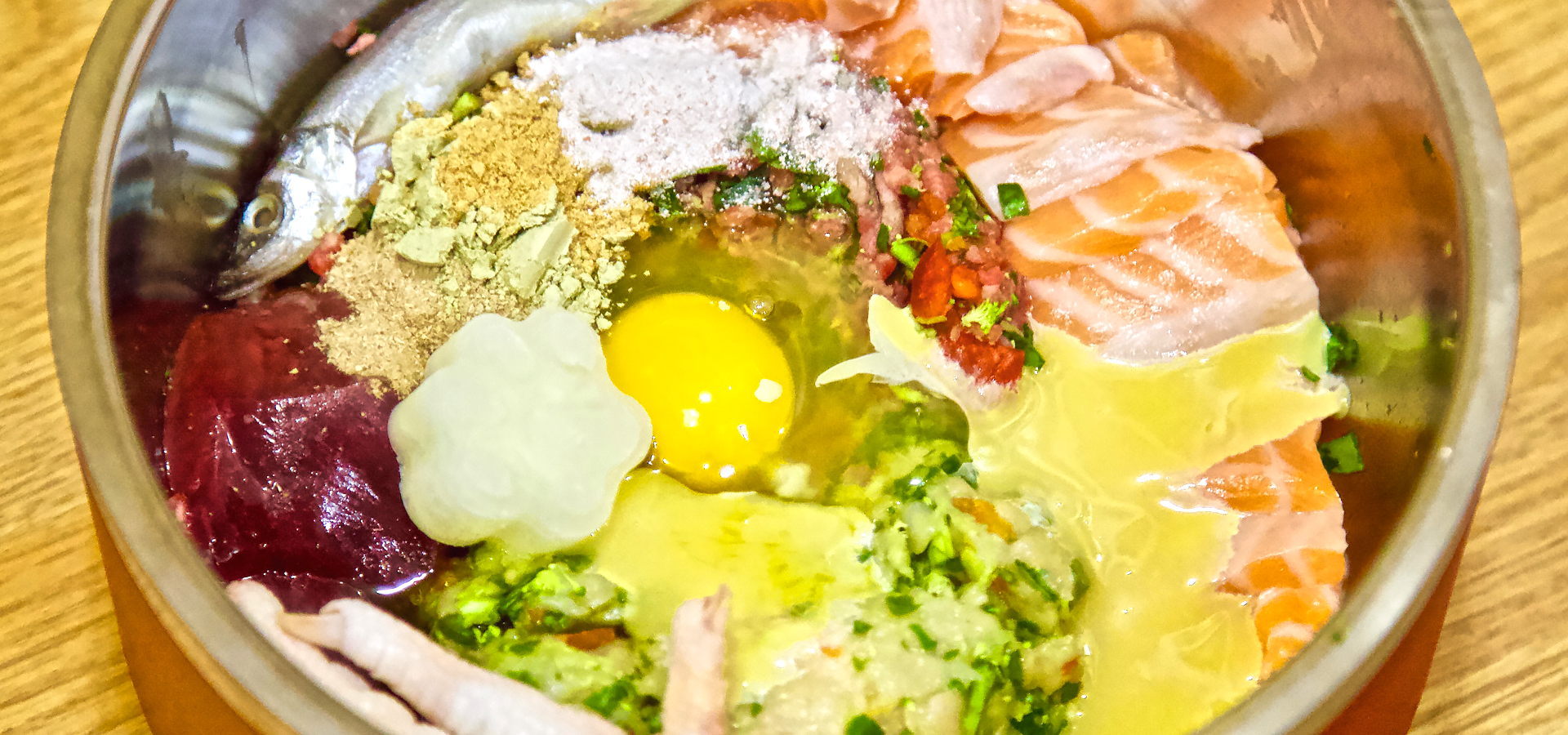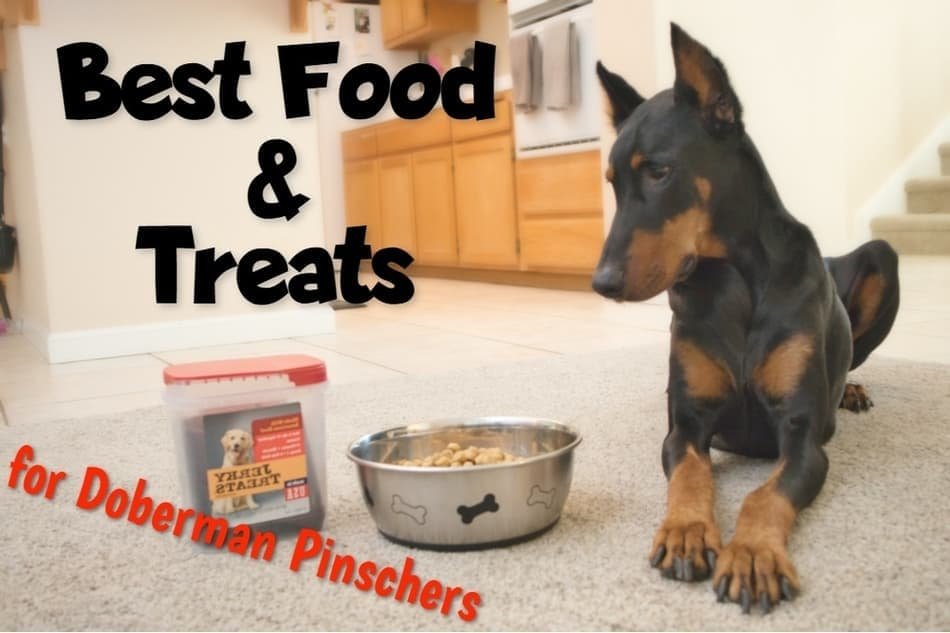When it comes to the best food for Dobermans, it’s important to provide them with a balanced diet that meets their specific nutritional needs. Did you know that Dobermans are prone to certain health issues like dilated cardiomyopathy and hip dysplasia, which can be influenced by their diet? Giving them high-quality, protein-rich food can help support their muscle development and overall health.
Dobermans have a history of being working dogs, bred for their strength and agility. This means they require a diet that is rich in protein and healthy fats to maintain their energy levels and build lean muscle. Additionally, it’s important to choose a food that is specially formulated for large breeds, as Dobermans can be prone to joint issues. Look for a food that includes ingredients like chicken, beef, or fish as the first ingredients, as well as essential nutrients like omega-3 fatty acids and glucosamine to support their joint health.
When it comes to feeding your Doberman, it’s important to choose a high-quality dog food that meets their nutritional needs. Look for a brand that is specifically formulated for large breed dogs and contains real meat as the main ingredient. Avoid foods with artificial additives or fillers. Additionally, consider consulting with your veterinarian to determine the best food for your Doberman based on their specific dietary requirements and any health conditions they may have.

What is the Best Food for Doberman?
Dobermans are active, intelligent, and athletic dogs that require a balanced and nutritious diet to support their overall health and wellbeing. But with so many options available in the market, it can be challenging to determine the best food for your Doberman. In this article, we will explore different factors to consider when choosing the ideal food for your Doberman and provide recommendations to help you make an informed decision.
1. Consider the Specific Nutritional Needs of Dobermans
Dobermans have unique nutritional requirements, and it’s crucial to select a food that meets their specific needs. As active dogs, they need a diet that is high in quality protein to support their muscle development and energy levels. Look for dog foods that list meat or fish as the first ingredient, such as chicken, beef, salmon, or turkey. Avoid foods that contain excessive fillers, by-products, or artificial ingredients.
Fats are also important for Dobermans as they provide a concentrated source of energy. Look for foods that contain healthy fats, such as omega-3 and omega-6 fatty acids, which promote a healthy coat and skin. Additionally, Dobermans require a diet that is rich in vitamins, minerals, and antioxidants to support their immune system and overall health.
Consult with your veterinarian to determine the specific nutritional needs of your Doberman, taking into consideration factors such as age, activity level, and any existing health conditions.
2. Choose High-Quality Dog Food Brands
When selecting a food for your Doberman, opt for reputable and established dog food brands that prioritize quality and safety. Look for brands that have a history of producing premium dog food and follow strict manufacturing standards. These brands often conduct regular testing to ensure the quality and safety of their products. Reading reviews and seeking recommendations from other Doberman owners or your veterinarian can also be helpful in finding trusted brands.
Remember to always read the ingredient list and ensure that the food does not contain any potentially harmful additives or fillers. Avoid foods that use artificial preservatives, flavors, or colors.
3. Consider Your Doberman’s Age and Life Stage
Doberman puppies have different nutritional needs than adult dogs, just as senior Dobermans have unique requirements. When selecting a food, consider your Doberman’s age and life stage to ensure they receive the appropriate nutrients at each stage of their life.
Puppy-specific formulas are designed to provide the necessary nutrients for growth and development, while adult formulas focus on maintaining optimal health. Senior formulas often contain ingredients that support joint health and overall vitality.
4. Decipher the Dog Food Labels
Reading and understanding dog food labels can be overwhelming. However, it is essential to decipher the information provided on the labels to make an informed decision. Look for labels that contain clear and concise information about the ingredients, guaranteed analysis, and feeding guidelines.
The guaranteed analysis will provide information about the minimum amount of protein, fat, and fiber in the food, allowing you to determine if the food meets your Doberman’s nutritional needs. The ingredient list should clearly indicate the primary source of protein and include real, recognizable ingredients rather than generic terms like “meat meal.”
5. Consider Your Doberman’s Unique Dietary Requirements
Dobermans may have specific dietary requirements based on individual factors such as allergies, sensitivities, or specific health conditions. If your Doberman has any of these issues, it is crucial to consider their unique needs when selecting a food.
For example, if your Doberman has a grain sensitivity or allergy, you may need to choose a grain-free formula. If your Doberman has joint issues, a diet that contains glucosamine and chondroitin can be beneficial for their joint health. Be sure to consult with your veterinarian to discuss any dietary restrictions or considerations for your Doberman.
6. Consider Your Budget
While it is important to prioritize your Doberman’s health and nutrition, it’s also essential to consider your budget when selecting a food. High-quality brands can come at a higher price point, so it’s important to find a balance between quality and affordability.
Compare prices and consider the cost per serving rather than just the upfront cost of the bag. Some premium dog foods may require smaller serving sizes, making them last longer and potentially offsetting the higher price tag. It’s important to find a food that suits your Doberman’s needs while also fitting within your budget.
7. Transitioning to a New Food
When introducing a new food to your Doberman, it’s crucial to do it gradually to prevent stomach upset or digestive issues. Start by mixing a small amount of the new food with the old food and gradually increase the amount of the new food over several days or weeks until your Doberman is fully transitioned.
8. Monitor Your Doberman’s Health and Wellbeing
Once you have selected a food for your Doberman, closely monitor their health and wellbeing. Pay attention to any changes in their energy levels, coat condition, stool, or overall vitality. If you notice any adverse reactions or concerns, consult with your veterinarian to explore alternative options.
9. Provide a Balanced and Varied Diet
While finding the best food for your Doberman is important, it’s also beneficial to provide a balanced and varied diet. Incorporate a mix of high-quality dry kibble, wet food, and fresh foods such as lean meats, fruits, and vegetables.
Offering a variety of foods can provide different nutrients and flavors, resulting in a happy and healthy Doberman.
10. Seek Professional Advice
If you are unsure about the best food for your Doberman, it’s always a good idea to consult with your veterinarian. They can provide personalized recommendations based on your Doberman’s specific needs and help you make an informed decision.
What is the Best Food for Doberman?
When it comes to choosing the best food for your Doberman, it’s essential to consider their unique nutritional needs, choose high-quality brands, and take into account factors such as age, dietary requirements, and your budget. Finding the right food can contribute to your Doberman’s overall health, energy, and wellbeing. Remember to gradually introduce new foods, monitor their health, and provide a balanced and varied diet. Consult with your veterinarian for personalized guidance and recommendations.
Key Takeaways: What is the best food for Doberman?
- Provide your Doberman with a high-quality, balanced dog food that meets their nutritional needs.
- Look for dog food that contains real meat as the first ingredient, such as chicken or beef.
- Avoid dog food that contains fillers, artificial colors, and preservatives.
- Consider feeding your Doberman a grain-free or limited ingredient diet if they have food allergies or sensitivities.
- Consult with your veterinarian to determine the best food for your individual Doberman’s specific needs and health conditions.
Frequently Asked Questions
Here are the answers to some common questions about the best food for Dobermans.
1. What are the key nutritional needs of Dobermans?
Dobermans require a balanced diet that consists of high-quality protein, healthy fats, and a moderate amount of carbohydrates. They also need essential vitamins, minerals, and antioxidants to support their overall health and well-being. It is important to choose a dog food that is specifically formulated for large breeds like Dobermans and meets the nutritional requirements recommended by veterinarians.
Additionally, Dobermans have a higher risk of certain health issues such as dilated cardiomyopathy (DCM) and hip dysplasia. Therefore, their diet should also include ingredients that promote heart health and joint support.
2. Should I feed my Doberman wet or dry food?
Both wet and dry food can be suitable options for a Doberman, and the choice depends on your personal preference and your dog’s individual needs. Dry food, also known as kibble, is convenient and helps maintain dental hygiene. Wet food can be more palatable for picky eaters and provide additional hydration. You can also consider a combination of both by mixing wet and dry food to provide variety and nutritional balance.
Regardless of your choice, ensure that the food you select meets the nutritional requirements for Dobermans and is made from high-quality ingredients.
3. Is a grain-free diet suitable for Dobermans?
The suitability of a grain-free diet for Dobermans is a topic of debate among experts. While some dogs may benefit from a grain-free diet if they have specific allergies or sensitivities, there is no clear evidence that Dobermans require a grain-free diet for their overall health. In fact, recent research has linked certain grain-free diets to an increased risk of dilated cardiomyopathy (DCM) in dogs, including Dobermans.
It is recommended to consult with your veterinarian before making any changes to your Doberman’s diet, especially if considering a grain-free option.
4. Should I feed my Doberman a raw food diet?
Feeding a raw food diet, also known as a BARF (Biologically Appropriate Raw Food) diet, is a personal choice for dog owners. While some people believe that raw food is more natural and beneficial for dogs, there are certain risks and considerations associated with it.
Raw food diets need to be carefully balanced to ensure proper nutrition and to minimize the risk of bacterial contamination. If you decide to feed your Doberman a raw food diet, it is important to consult with a veterinarian or a veterinary nutritionist to create a well-rounded and safe feeding plan.
5. How can I determine the best food for my Doberman?
Determining the best food for your Doberman involves considering several factors. These include your dog’s age, activity level, any underlying health conditions, and personal preferences. It is important to choose a high-quality dog food brand that clearly states the nutritional analysis, ingredients, and meets the Association of American Feed Control Officials (AAFCO) standards.
Your veterinarian can also provide valuable guidance and recommend specific brands or formulations that are suitable for your Doberman’s needs. They can take into account any specific dietary requirements or health concerns to help you make the best decision for your furry companion.

The Best Food I’ve EVER Fed My Doberman (Ollie Food)
When it comes to choosing the best food for your Doberman, it’s important to prioritize their specific nutritional needs. A high-quality dog food that is specially formulated for large breed dogs is ideal for your Doberman’s health and well-being.
Look for a dog food that contains a balanced blend of proteins, carbohydrates, and fats to support your Doberman’s active lifestyle. The food should also be rich in essential vitamins and minerals, such as calcium and phosphorus, to support their bone and muscle health. Avoid foods that contain fillers, artificial colors, and preservatives, as these can be harmful to your Doberman’s digestive system.
